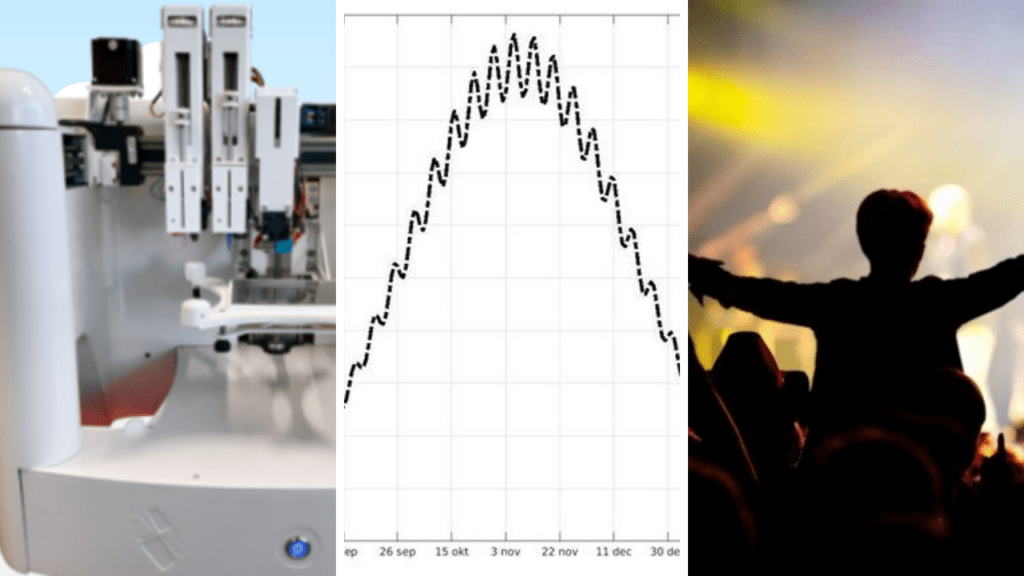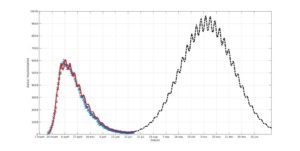As Belgium is preparing for the next National Security Council tomorrow, calls from experts to restrict measures and possibly impose local lockdowns again are rising.
The rise in infection figures is not only happening in Belgium, but across the world. A model based on Sciensano's figures of hospital admissions made by a Belgian professor shows that the peak caused by a second wave would reach almost 10,000 hospitalised patients if we don't act now.
“We still have until 31 July to reverse the growth. Stabilisation is not enough."
In the meantime, the country continues to wait for the decision of the National Security Council, contact tracers have asked for attendance lists at events, and the University of Ghent has developed a technique to 3D print human tissue.
With so much information, and so little time to catch up before it potentially changes again, here are some of the top stories from around the country to get you up to speed.
1. Mayors get manual on how to handle local outbreaks
The country’s 581 mayors have been issued a manual on how to deal with a local outbreak of coronavirus (Covid-19).
With the regional and national governments now meeting every few days in either the consultative committee or the national security council, tension is clearly high in the face of the continuing rise in the number of new cases of Covid infection. Read more.
2. Second coronavirus peak in Belgium likely higher than the first
A second coronavirus peak in Belgium would be a lot higher than the first, according to a model based on Sciensano’s figures for the number of hospitalisations by VUB professor of biostatistics Kurt Barbé.
“My model keeps the current R-factor (the reproduction number) at 1.2064,” Barbé said in a Facebook post on Monday.
In May, Barbé made projections about what a second coronavirus wave might look like. “I fear that the data are consistent with the pessimistic expectations that were made then,” Barbé said. According to his model, the second wave has started. Read more.
3. Over 200 new coronavirus infections in Belgium per day again
The number of coronavirus infections will continue to rise as over 200 new ones have been reported per day in Belgium over the past week, during a press conference on Wednesday.
“We expect the number of infections to increase even further in the coming days. In absolute figures, more than 200 new infections have been reported almost every day between last Tuesday and Friday,” Boudewijn Catry, spokesperson for Sciensano said.
Most infections occur in people between 20 and 59 years old, figures show. Read More.
4. Contract tracers ask to make event attendance lists mandatory
Karine Moykens, the president of the Inter-federal Testing & Tracing Committee wants to make “attendance lists” compulsory for all events, various newspapers report on Wednesday.
Moykens has asked the National Security Council, which meets again on Thursday, to effectively make such “attendance lists” mandatory for all events.
Event organisers should collect all the surnames, first names and telephone numbers of those participating. “If an infected person has attended an event, the organisers will have to present this list to the contact tracers,” Moykens said. Read more.
5. Local lockdowns will likely happen soon, says Belgian expert
As Belgium’s coronavirus figures are still rising, local lockdowns are likely to be implemented very quickly, said biostatistics professor Geert Molenberghs on Tuesday.
It is advisable that some regions go into lockdown again soon, Molenberghs said on MNM radio. If that does not happen, the country is heading for a second, more drastic total lockdown, according to him.
Especially the province of Antwerp should consider a smaller, less radical lockdown, he said. Read more.
6. Ghent university spin-off develops bio-ink to 3D print human tissue
Xpect-INX, a spin-off from the University of Ghent, has developed a technique for using a 3D printer to print human tissue using what it calls bio-ink.
At present, while 3D printers have been used to print an entire building, in the medical field they have been restricted to the construction of medical apparatuses such as implants, as well as models such as those used in facial reconstruction.
The idea of using 3D printing to make human tissue is not a new one, but now, Xpect-INX has developed a type of bio-ink which, when used with a special 3D printer, can create workable substitutes for human tissue. Read more.
7. Belgian King urges young Belgians to ‘behave responsibly’
On the Belgian National Day on Tuesday, King Philippe gave an additional speech, warning the population that the coronavirus crisis is not over yet.
On Monday, the king gave his traditional speech on the occasion of the National Holiday, in which he called for a government to be formed, among other things. On Tuesday, however, he delivered an additional speech, in which he stressed that the coronavirus pandemic is not done yet.
“The pandemic is far from over. Let us – and I am addressing the young people in particular – remain extremely cautious and behave responsibly,” the king said. Read more.
Maïthé Chini
The Brussels Times



